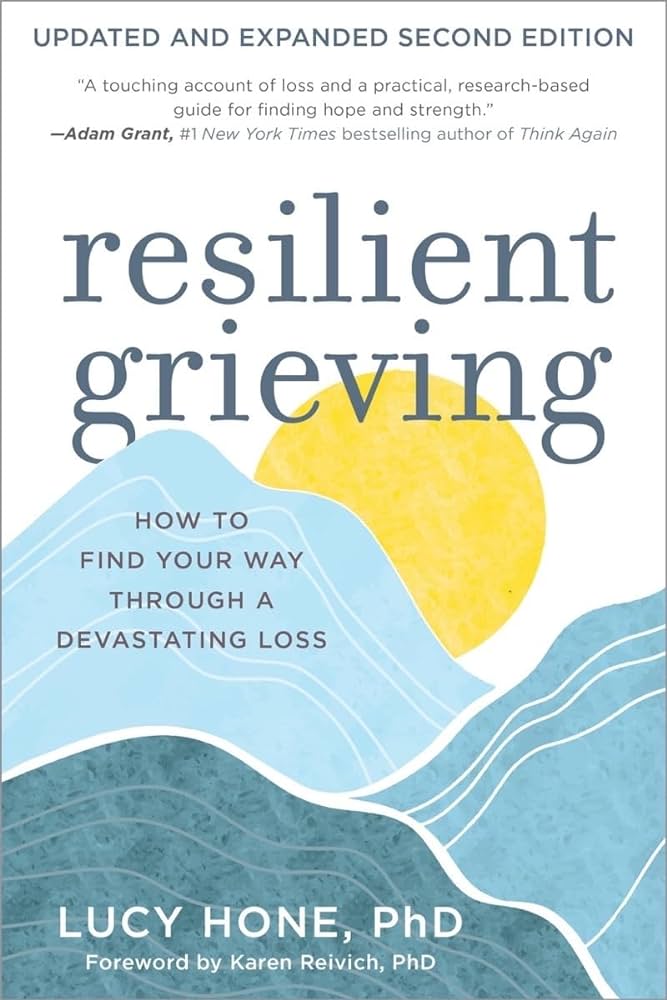Losing a loved one is never easy. The pain and sorrow that follows can be overwhelming, leaving us feeling lost and broken. It is during these times of intense sadness and grief that our resilience is truly tested. Resilience, the ability to bounce back and adapt in the face of adversity, becomes a crucial quality that helps us navigate through the darkest moments of our lives.
I remember the day I received that dreaded phone call informing me of my father’s sudden passing. The world seemed to come crashing down around me, and I felt a deep sense of despair permeate every aspect of my being. In the following days and weeks, grief consumed me – a torrent of emotions that threatened to drown me in its powerful current.
But amidst the darkness, a small flicker of light began to emerge. It was resilience, slowly but surely making its presence known. It whispered to me, reminding me of my inner strength and urging me to find a way to move forward. And with each passing day, I learned valuable lessons about resilience.
First and foremost, resilience does not mean suppressing our feelings or pretending that everything is fine. It is an acknowledgment of the pain and a willingness to experience and process it. I realized that grief is not something that can be rushed or hidden away. It is an intricate part of our healing journey, and by allowing myself to truly feel the depth of my loss, I was able to begin the process of healing.
In the midst of sorrow, resilience often manifests in seeking support from those who understand and empathize with our pain. Friends and family became my pillars of strength, offering their love and support in ways I could never have imagined. They listened to my stories, wiped away my tears, and held my hand through the darkest moments. Their presence reminded me that I was not alone, and together, we could navigate the turbulent waters of grief.
At the same time, I discovered the power of self-care. In the midst of loss, it is essential to prioritize our physical, mental, and emotional well-being. For me, this meant taking long walks in nature to find solace and peace, journaling to process my thoughts and emotions, and seeking professional help through therapy. By investing time and energy into self-care, I was able to replenish my own reserves, allowing me to face each day with renewed strength and resilience.
The path to resilience is not linear; it is filled with ups and downs, setbacks and breakthroughs. There were times when I felt overwhelmed by grief, moments when I questioned if I would ever find a way to move forward. But it is in these moments of vulnerability that resilience shines brightest. It whispers to us, reminding us of the inherent strength we possess and the power to choose how we respond to adversity.
Resilience is not about erasing the pain; it is about finding meaning and purpose in the midst of it. For me, this came in the form of honoring my father’s memory and carrying forward his legacy. I founded a charity in his name, which allowed me to channel my grief into something positive and fulfilling. It provided me with a sense of purpose and a renewed motivation to make a difference in the lives of others.
Through my journey of loss and grief, I have come to understand that resilience is not an endpoint but a continuous process. It requires patience, self-compassion, and a willingness to embrace the growth that comes from adversity. Each day brings new challenges, but with resilience as our guiding force, we find the strength to face them head-on.
If you are currently facing loss or grief, I want you to know that you are not alone. Your pain is valid, and it is okay to feel overwhelmed. But remember that within you lies an unyielding spirit of resilience, waiting to be awakened. Embrace your emotions, seek support, and prioritize self-care. Allow the light of resilience to guide you through the darkness, and you will emerge stronger on the other side.
